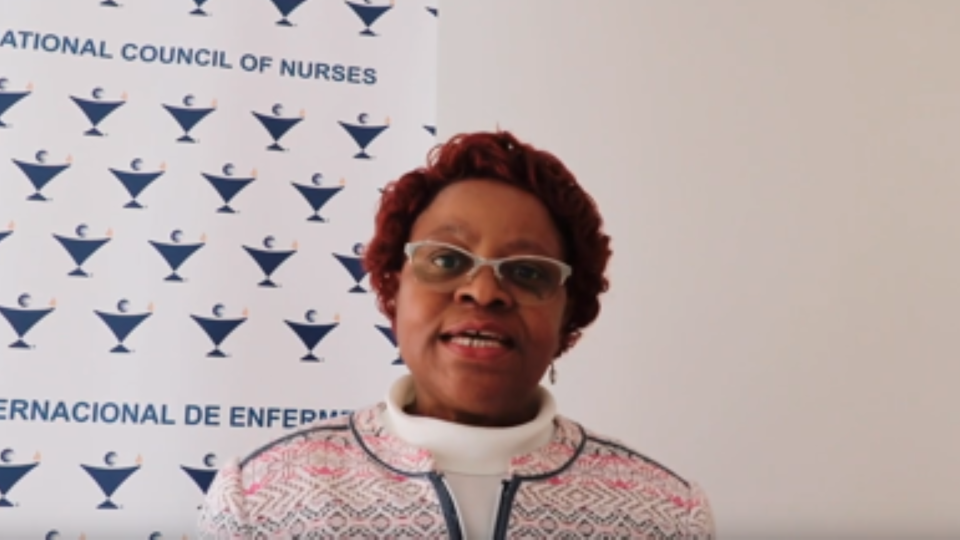GNLI Alumni Speak Out - Part 6

Semakaleng Phafoli is a nurse and midwife from Lesotho, and a former president of the Lesotho Nurses Association who, in 2017, was recognised as a Heroine of Health by Women in Global Health at the 70th World Health Assembly in Geneva.
Such accolades are a rare celebration of the achievements of remarkable women, who Women for Global Health says help to bring about change in gender equity matters, and positively influence local, regional, and global health policies related to the World Health Organization’s goal of Universal Health Coverage.
Dr Phafoli has spent more than 30 years helping to prevent the spread of HIV and Aids in pregnant women and babies, working to improve health services for families, and training nurses and midwives so that they can provide life-saving care.
She is currently the senior nursing and midwifery technical advisor at Jhpiego, which was previously known as the Johns Hopkins Program for International Education in Gynaecology and Obstetrics.
In 2018 Dr Phafoli completed the ICN Global Nursing Leadership Institute (GNLI) programme, which is a strategic leadership programme that prepares very senior nurses from around the world to drive policy that improves the health of people, healthcare and the nursing profession.
‘I wanted to be enrolled in this program to acquire the leadership skills that are now necessary in nursing,’ Dr Phafoli says. ‘I also wanted to network with nurse leaders from different walks of life and different parts of the world so that we could share our leadership experiences.’
She says it is vital that senior nurses are politically aware, and that they understand the importance of political power and how to get access to it.
‘This program is really what nurse leaders need right now. It touches on the past, current and future issues that are necessary for leadership in nursing, including political aspects and their implications on nursing education, practice and policy.’
Dr Phafoli says undertaking the programme was challenging, especially in meeting the course deadlines and finding an appropriate mentor, but she says the ongoing contact from her colleagues since finishing the programme has proved to be very supportive.
‘It was very useful, and with the networks we have established, we continue to communicate and support each other. The course has helped me engage in a number of challenges that were facing our National Nursing Association, which otherwise I would not have been eager to assist in solving.’
She says the main insight gained from the programme was about how policy making is not a straightforward or linear activity.
‘Policy making is a process that usually does not have well-ordered stages. It is also difficult to separate power/politics from public policy: and one way or the other, as nurse leaders, we have to participate in politics, because that is where decisions affecting nursing are made.
‘The program made me realise and acknowledge that I do have the necessary skills and abilities, and I have to use them profitably for myself, as well as for the growth and development of the nursing profession. It also made me realise some of my weaker areas so that I could be able to work on them, this time not alone, but with the networks I have built.’
She says completing the programme has boosted her confidence and encouraged her to put her views across more strongly.
‘I have gained more self-esteem, I have more confidence in arguing my point of view and I have grown in political astuteness.’
She says the programme has taught her the benefit of engaging with colleagues and recognising that they may well have had similar experiences to share. ‘Even just talking helps in getting new ideas,’ she says.
Since finishing the programme Dr Phafoli has been engaged in helping the LNA to revise its constitution, organise its 46th annual general meeting and launch the Nursing Now campaign in Lesotho.
And this year she became a co-facilitator of the GNLI programme.
She has used her leadership role to help the LNA to resolve some difficult issues between members, many of whom have a lot less experience of working at a national level than she does.
She is now involved in supporting the Ministry of Health with providing refresher training for nurses on good customer care and ethical issues in nursing.
She has developed a group for LNA ex-Presidents and Chief Nursing Officers, harnessing their knowledge and experience to support the LNA.
And she has grabbed opportunities for nurses and for the growth of the nursing profession. For instance, a group of young Jhpiego nurses (35years and below) are to be trained on leadership under the Nursing Now Nightingale Challenge 2020.
Dr Phafoli has recommended the GNLI programme to colleagues, and in September 2019 Lesotho’s Director for Nursing Services is due to participate in it.
Dr Phafoli says all aspiring senior nurse leaders should consider joining the GNLI.
‘The journey to nursing leadership is not a straightforward one, and one must be prepared for anything. It is vitally important to continue learning and communicating with other nurse leaders.’